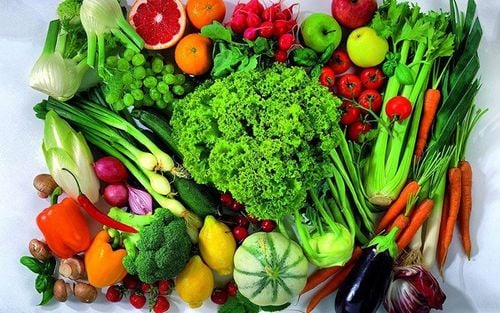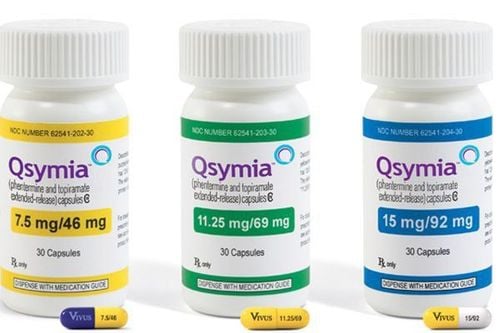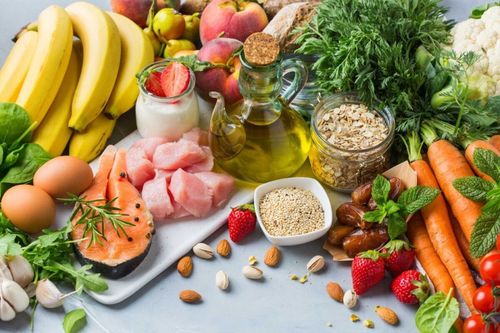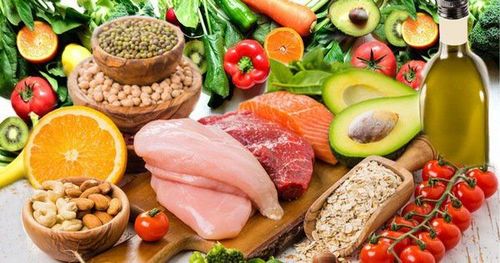This is an automatically translated article.
Bacteria, some types of plant pollen or toxic chemicals entering the body will easily lead to inflammation. Intermittent inflammatory episodes will create conditions for external factors to threaten your health. A cause of inflammation that very few people can expect is substances in everyday foods.
1. How do inflammatory foods affect health?
It's no surprise that certain foods in our daily diet can be as harmful to our health as soft drinks and refined carbohydrates. Besides, red meat and processed meat can also cause inflammation.
Unhealthy foods will contribute to weight gain. Besides, it is also one of the factors that increase the risk of infection.
2. 6 foods that can cause inflammation
2.1. High-fructose corn syrup and sugar Table sugar and high-fructose corn syrup are the two main added sugars in the Western diet.
Sugar contains 50% glucose and 50% fructose. Meanwhile, corn syrup is high in fructose, about 45% glucose and up to 55% fructose. This is one of the reasons that sugars are so harmful, they can increase inflammation, which in turn leads to disease.
One study found that rats fed a diet high in sucrose developed and developed breast cancer that had spread to their lungs, in part because they had an inflammatory response to the sugar.
Although a small amount of fructose in fruits and vegetables is good, consuming large amounts of sugar is not healthy. Eating a lot of fructose has been linked to obesity, insulin resistance, fatty liver disease, diabetes, chronic kidney disease, and cancer. Additionally, researchers have suggested that the sugar fructose causes inflammation in the endothelial cells that line your blood vessels. This is a factor that increases the likelihood of heart disease. From the above experiments, it has also been shown that high consumption of fructose increases several inflammatory markers in rats and humans.
Foods with a lot of added sugars include candy, chocolate, soft drinks, cakes, cookies, some cereals, donuts and cakes...
2.2. Artificial trans fats Artificial trans fats are fats that are not good for your health. They are made by adding hydrogen to unsaturated, liquid fats. Thereby, giving them more solid fat stability. On product ingredients lists, trans fats are often listed under the name "partially trans-hydrogen oil." It is contained in most margarine. They contribute to prolonging the shelf life of the product.
Milk and meat contain natural trans fats that are not harmful to health. In contrast, artificial trans fats have been shown to cause inflammation and increase disease risk. In addition to lowering HDL cholesterol, trans fats can decrease the function of the endothelial cells that line your arteries. This is a factor that can cause heart disease. Consuming artificial trans fats has also been linked to high levels of inflammatory markers such as C-reactive protein (CRP). In fact, in one study, 78% higher CRP levels were found in women who consumed large amounts of trans fats.

Thực phẩm gây viêm có thể kể đến các loại bơ thực vật
In a randomized controlled trial in overweight older women, it was found that the hydrogenated soybean oil they ate increased inflammation significantly more than women who consumed the oil. palm and sunflower oil. Similar studies in healthy men and men with high cholesterol levels have shown an increase in inflammatory markers in response to trans fats.
Foods high in trans fats such as chips, some types of microwave popcorn, other fast foods, some margarines, packaged cakes and cookies, some pastries and all processed foods with partially hydrogenated vegetable oils on the label.
2.3. Vegetable and Seed Oils During the 20th century, the United States increased its consumption of vegetable oils by 130%. Some scientists think that certain vegetable oils such as soybean oil promote inflammation due to their very high content of omega-6 fatty acids.
Some omega-6 fats are essential in the diet, but in fact, health professionals recommend eating more foods rich in omega-3s, such as fatty fish, to improve your omega ratio. -6 on omega-3. From there, we get the many anti-inflammatory benefits of omega-3s.
However, some evidence that eating a lot of omega-6 fatty acids increases inflammation in humans is currently limited. More research needs to be done before definite conclusions can be drawn.
2.4. Refined carbohydrates Refined carbohydrates (carbs) can also cause inflammation. However, it depends on what type of carbs it is. Unprocessed carbs existed in abundance for millennia. Therefore, ancient people consumed a lot of fiber and unprocessed carbs such as grass, fruit, etc. In contrast, refined carbs have removed most of the fiber. Fiber makes you feel full, which, in turn, feeds beneficial bacteria to your gut and controls your blood sugar.
Scientists think that refined carbs can increase the growth of bacteria that cause intestinal inflammation. Besides, it can also increase the risk of obesity. They also say that refined carbs carry a higher glycemic index (GI) than unprocessed varieties.
Refined carbohydrates are found in bread, cakes, candy, some cereals, soft drinks,... In short, it is necessary to limit the intake of refined carbs found in all processed foods that contain a lot of food. sugar or powder.
2.5. Alcohol Drinking alcohol in moderation has been shown to provide certain health benefits. But as everyone knows, heavy drinking can lead to serious problems.
According to the research results of scientists, the more alcohol you drink, the higher the CRP level. People who drink too much can experience a condition commonly known as "leaky gut". Toxins and harmful bacteria can move out of the colon and into the body. From there, organs will gradually be seriously damaged.
Remember the best dosage for men is 2 drinks per day and 1 drink per day for women.
2.6. Processed meat Most of us consume processed meats, but not everyone is aware of their potential health risks. Eating too much will increase the risk of heart disease, stomach cancer,...
The most commonly seen processed meats such as sausages, ham, beef jerky and bacon,... How to prepare meat Processing is the main cause of inflammation. Processed meat contains more advanced glycation end products (AGEs) than most other meats. It forms through cooking certain foods and meats at high temperatures. In particular, colon cancer is a very common disease for people who regularly eat processed meat.
In addition, inflammation can also be caused by many factors that are difficult to prevent such as pollution, injury or disease. According to the advice of experts, you should change to a healthier and more scientific diet to activate the body's immune system.
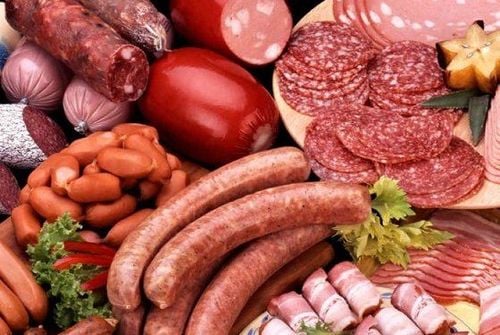
Thịt chế biến là một trong các loại thực phẩm gây viêm
3. Anti-inflammatory foods
PhD epidemiology in the Department of Nutrition at the Harvard-Frank Hu School of Public Health says: “Components of food or drink may have anti-inflammatory effects. You can reduce your risk of getting sick from choosing the right anti-inflammatory foods.”
Some anti-inflammatory foods are as follows:
Tomatoes. Olive oil. Green vegetables, such as kale and bok choy,... Nuts like walnuts, almonds,... Salmon, sardines, mackerel,... Strawberries, oranges, blueberries, ...
4. Anti-Inflammatory Diet
Create for yourself healthy eating habits to be able to fight infections and protect health. The Mediterranean diet is recommended for you, it includes a variety of fruits, vegetables, nuts, whole grains, fish and healthy oils.
Please dial HOTLINE for more information or register for an appointment HERE. Download MyVinmec app to make appointments faster and to manage your bookings easily.
Reference source: healthline.com




